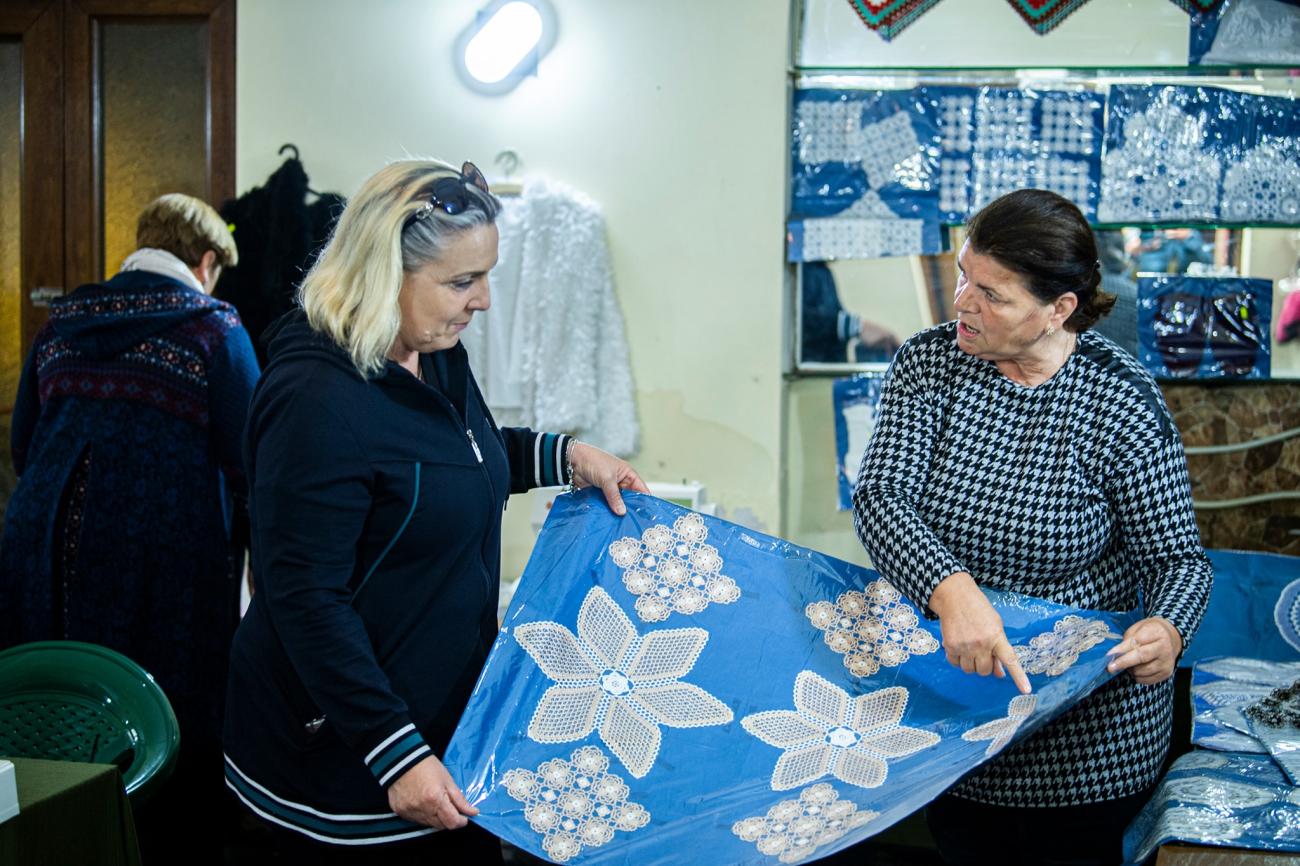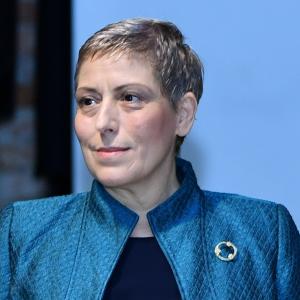.jpeg?auto=webp)
“We are a proud group of women. Proud to, despite all, spread goodness and love to all around us. We have never given up and have found the strength to overcome all obstacles. During the pandemic, we have used our sewing skills to produce masks and distribute to schools and people in general. We went out and gave them away, free of charge, to every passerby. That is love”.
Those are the words with which Mire Salihu, the Secretary of the ”Lidhja e Invalidëve, viktimave dhe të zhdukurve në Kosovë” (Association of Invalids, Victims, and the Missing in Kosovo) in Fushë Kosovë/Kosovo Polje as she greets us. Her enthusiasm is irresistible and when she speaks it is from the heart.
.jpg?auto=webp)
We join her and a handful of women in a small room next to the workshop where they meet daily to sew, embroider, and create other handicrafts. The association has more than 500 members and gathers not only family members of those who were killed or went missing in 1999, victims of domestic abuse and gender-based violence have also joined the group.
With these large numbers every support is welcome. Ladies are only too happy to immediately inform me we also had a hand in it. Thanks to the British funded “Dealing with Conflict Legacy in Kosovo” project, UNDP supported the association with all the necessary tools and equipment needed for a hair salon, which we will visit later, to run smoothly.
.jpg?auto=webp)
After the greetings around the room, enquiring about everyone’s health and family, Sanije Aziri is the first to speak. She can’t thank enough both the founder of the association Mr. Mustafë Prenku and Mire the secretary, for their dedication and relentless work: “We think they are even neglecting their families to be here for us. To lend a helping hand, a shoulder to cry on, an ear to listen. It is not easy; we all have a history to tell and we tell them frequently to each other. This is the way we cope and heal. Being here together, working together, takes our minds from the worries. And, it helps us support our families.”
Arlinda Murtezi comes from the Egyptian community and is a mother of five. Her sewing skills are the only means to support her family, but she does not complain: “I am the head of the family and the only provider. I hope, one day soon, my children will find jobs and be able to help. Until then, I have a sewing machine and I have my friends!”
.jpg?auto=webp)
.jpg?auto=webp)
.jpg?auto=webp)
.jpg?auto=webp)
We say our goodbyes and head towards our next stop. The hair salon looks small as we approach but we realize it is strategically located on the ground floor of a new building complex.
Fatime Drejta, member of the association herself, and a certified hair stylist is currently training six of the members. They hope to gain enough experience to work independently and this vocation to be their way of providing for their families. However, the times are tough. Vlora Mirena, one of the trainees explains: “The pandemic has shut down everything. People tend to necessities only. For some, even a simple haircut has become a luxury, let alone any other hair or makeup treatment. There are no weddings and no parties. Which means very limited number of clients. But we don’t complain. This is giving us more time to learn, to train, and to become even better in what we do. We experiment on each other, so we always have a nice hairdo to show. Hopefully, with the decrease of numbers of infections the restrictions will be lifted, and we can start working full speed,” says Vlora trying to laugh away her concerns.
.jpg?auto=webp)
.jpg?auto=webp)
Our visits come to an end. We leave behind a group of strong women, who went through the hardest time and big losses of family members, with the understanding that more than the work, engagements, financial gain, they are there for the friendship, for moral, psychological, emphatic support for each other. They are survivors. In more ways than one.
The Dealing with Conflict Legacy project supports all communities who have missing family members in tackling existing conflict legacy issues and building sustainable reconciliation in Kosovo.
.jpg?auto=webp)



.jpeg?auto=webp)
.jpg?auto=webp)
.jpg?auto=webp)
.jpg?auto=webp)
.jpg?auto=webp)
.jpg?auto=webp)
.jpg?auto=webp)
.jpg?auto=webp)
.jpg?auto=webp)
.jpg?auto=webp)


